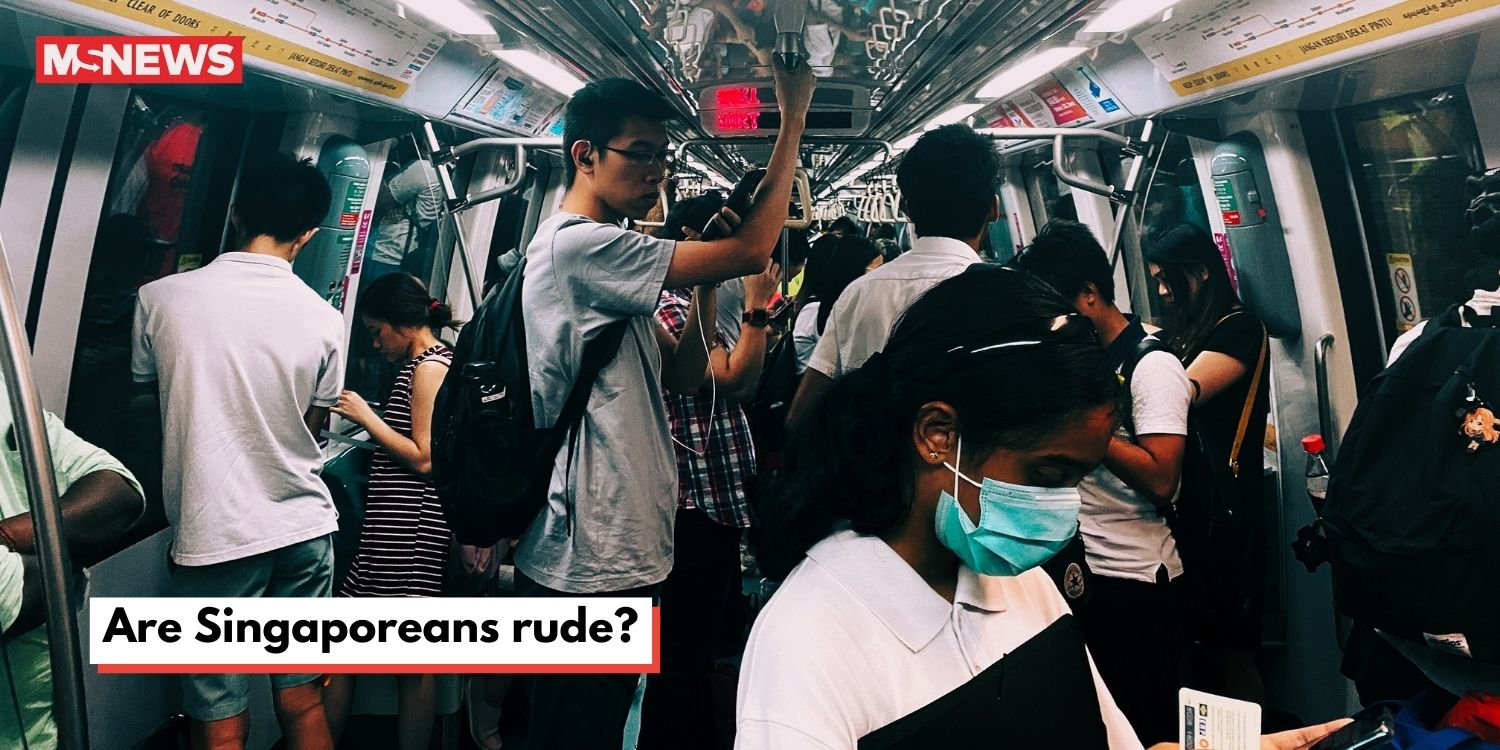Are Singaporeans rude? More than half of people surveyed seem to think so
One may wonder if there’s room for kindness in fast-paced Singapore, where everyone is either on their phones or submerged in their own worlds.
Reports of some bad apples here certainly point to an apparent lack of courtesy.
Back in January this year, a Redditor asked if Singaporeans were rude after witnessing the ill-treatment of a server at Genki Sushi, generating a debate in the comments.
In a separate occasion, a tearful tourist in Singapore recounted her experience of ill-treatment at the hands of a local driver.
Woman Claims S’pore Grab Driver Missed Hotel Drop-Off Point & Refused To Return, Gets Refund
Meanwhile, an Australian traveller had this to say about Singaporeans:
I just don’t think that the people [in Singapore] were nice to me in my experience and they were so blunt about it.
A recent Answers.sg poll revealed that 53% of those surveyed do think that yes, Singaporeans are really that rude.
Is kindness, therefore, a lost currency in Singapore? While the state of things seems to be dire at the moment, there may be some room for hope left in the Lion City.
53% of people polled say Singaporeans are rude
According to a poll on Answers.sg, 53% of 1,635 respondents — or 866 of them — agreed that Singaporeans are rude.
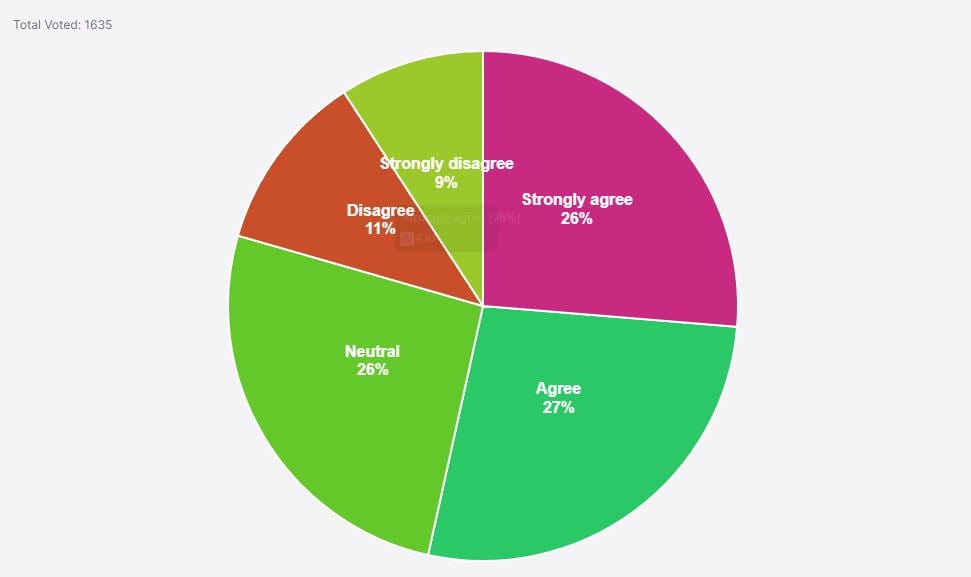
Results from an Answers.sg poll
Of that 53%, 26% of those who responded to the poll strongly agreed with the statement.
On the other hand, 20% disagreed that Singaporeans were rude, with 9% of them, or 147 respondents, feeling strongly on the matter.
This shows that there are some who definitely think the better of Singaporeans, though this isn’t particularly an impressive number.
As for those left, 26% remained neutral on the topic.
Singaporeans have made headlines for being rude
To understand this sentiment of “rude Singaporeans”, let’s look at some instances of dubious behaviour.
As recently as last month, a man in Singapore confronted mosque-goers over the “noise” made during its prayers — perhaps rather ironically pointing out to them that they had to be “considerate”.
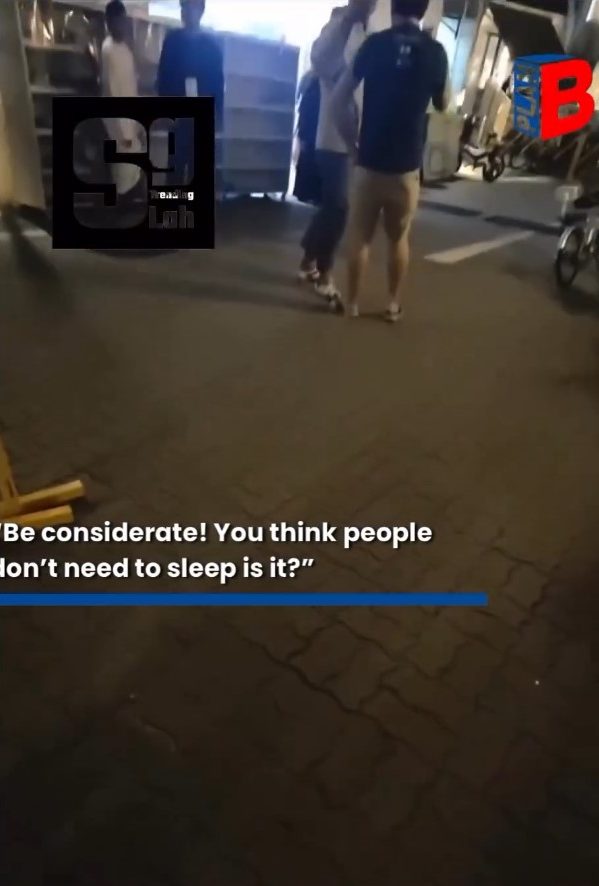
Source: @planb.sg on Instagram
And this isn’t the most outrageous act of rudeness we’ve witnessed in Singapore lately, either.
While commuting on the MRT, a woman had hogged the reserved seat with her grocery bags.
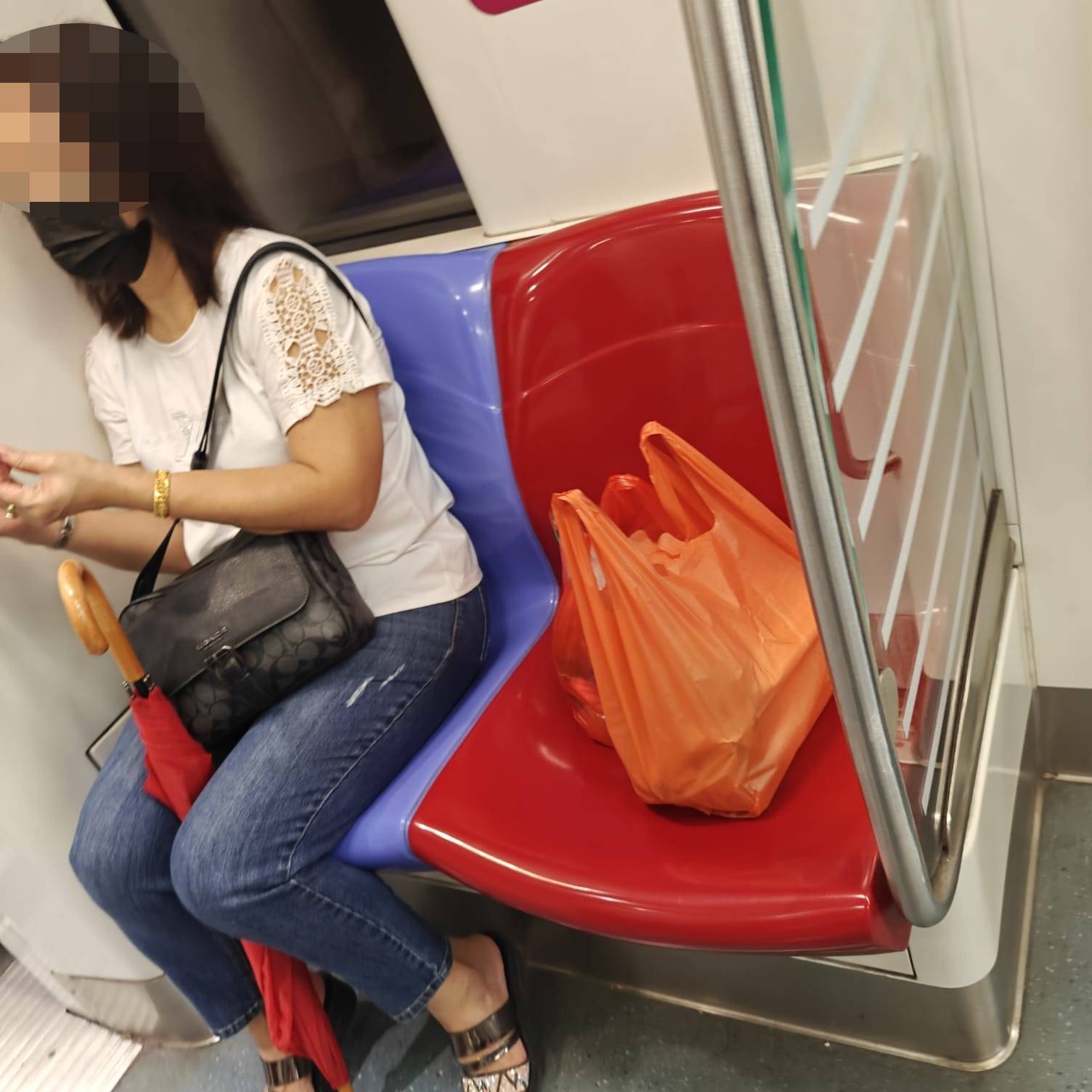
Source: Complaint Singapore on Facebook
Witnesses also claimed that she had turned away those who requested to sit there.
Such scenes, especially in public, are not all that uncommon.
How many times have we seen people pretend to sleep in the seats they had painstakingly obtained whilst riding public transport, just to avoid giving it up to the child, elderly passenger or heavily pregnant woman standing right in front of them?
Motorists in Singapore are also not known to be the most courteous — prioritising their need to get to their destination as fast as possible.
Speak to any driver here and they would have their own anecdotes of aggressive encounters on the road.
In one angsty incident that went viral in March, a Mercedes driver lost their cool at a Grab rider after they had mistakenly parked in a motorcycle lot.
All these examples paint Singapore as a dog-eat-dog world, with incredibly little space for kindness to take hold.
An overworked society might be part of the problem
How poorly Singaporeans present themselves has been a hotly debated topic online.
As recently as September last year, a user posed a simple question on the HardwareZone Forums: “Singapore is a land of rude and unfriendly people?”
This topic generated a barrage of defensive replies.
Among them, the popular opinion that surfaced is that Singaporeans were simply far too exhausted to put up a smile for strangers.
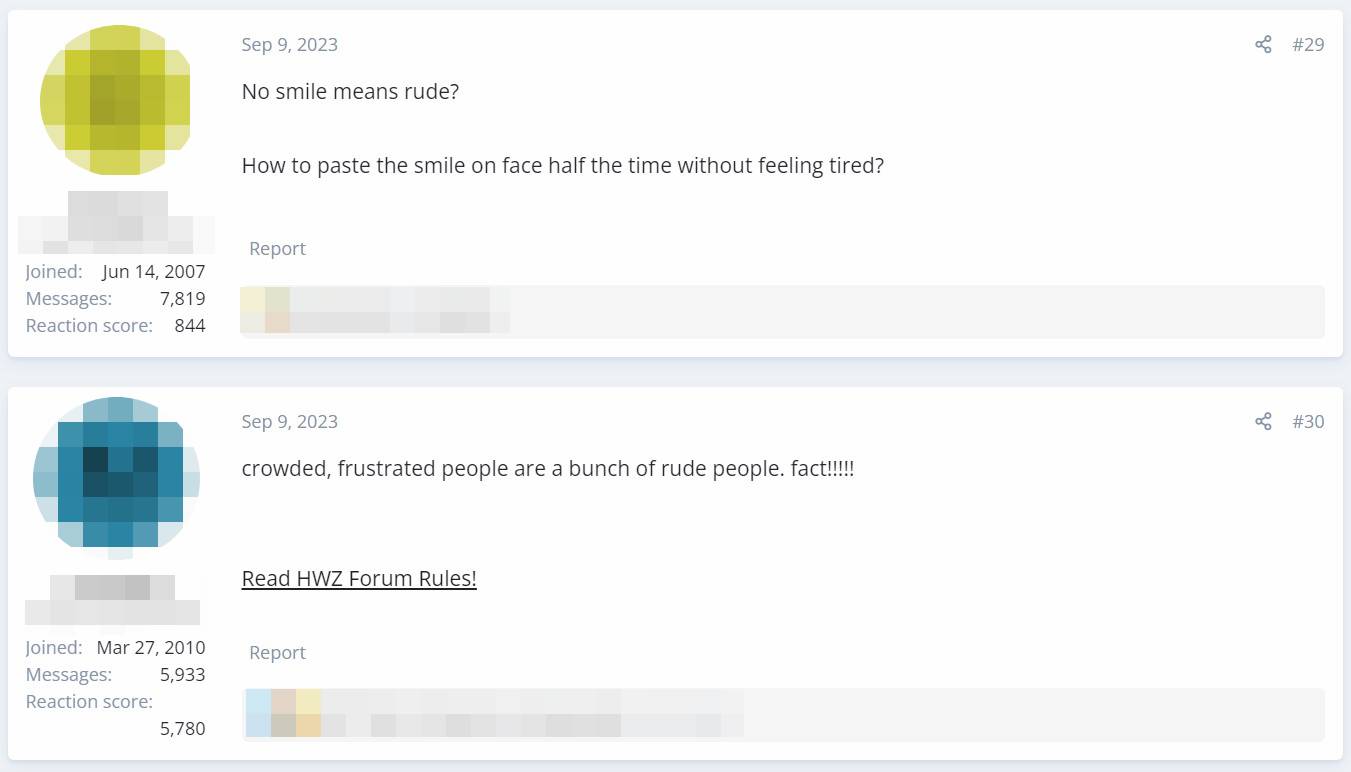
Source: HardwareZone Forums
Add that to the fact that in 2022, Singapore ranked as the fourth most overworked society in the world, with the majority of Singaporeans saying that they work more than 44 hours a week here.
Most of us deal with a nine-to-six work schedule — and said work more often than not follows us home.
Perhaps in this, we can be excused for maintaining an aura of unfriendliness towards those around us.
After all, it might be a tall order to expect a “please”, “thank you” and “here you go” from someone operating on four hours of sleep.
However, does exhaustion really justify poor behavior towards staff at local eateries, elderly workers at hawker centres, or retail employees?
Being tired is not an excuse for bad behaviour
At the peak of the Covid-19 pandemic in 2021, the Union of Security Employees (USE) surveyed 1,002 officers and found that 42.3% of them had experienced some form of abuse.
That same year, the Singapore Kindness Movement spoke to a cleaner at a hawker centre, who admitted that she encountered “many rude customers” in her line of work.
Those who have worked in retail can also vouch for this. A startling number of customers seem to have little regard for employees’ time and patience — especially during the weekend.

Be it parents ordering that mountains be moved for their kids, or customers demanding a singular product and accepting nothing else as a replacement, there is a startling lack of courtesy when it comes to interactions between customers and working staff.
Of course, the argument could be made that it’s a universal issue not unique to just Singapore.
For decades, retail, restaurant, and other such workers have aired their complaints about the entitlement of customers in particular.
Georgetown University management professor Christine Porath conducted a survey in 2023. The results of her study showed that most respondents felt customers were more rude to frontline workers than they were five years ago.
Even so, it doesn’t mean we, as Singaporeans, can’t keep our behaviour in check when speaking to such staff in particular.
Population density in big cities makes people defensive
The irritability of Singaporeans could also possibly be due to another reason — the increasing population density of Singapore.
According to the Population In Brief 2023, Singapore’s total population stood at 5.92 million as of June 2023. This constituted a 5% increase from the previous year.
The increasing population density in Singapore, combined with the hustle and bustle that is characteristic of our society, can be a recipe for disaster.
After all, jostling in a crowded MRT train with our fellow passengers, or standing elbow-to-elbow in a crowded McDonald’s at the peak of the lunch hour, or waiting in line at the bank can bring even the most patient and stoic of individuals to their knees.
This isn’t a problem specific to just Singapore.
In an interview with BBC, Dr Elle Boag, a social psychologist at Birmingham City University, said that people generally view big cities as threatening places.
“When we step off the metro or onto a crowded city street our brain becomes hyper-vigilant to the perception of threats around us,” she explained.
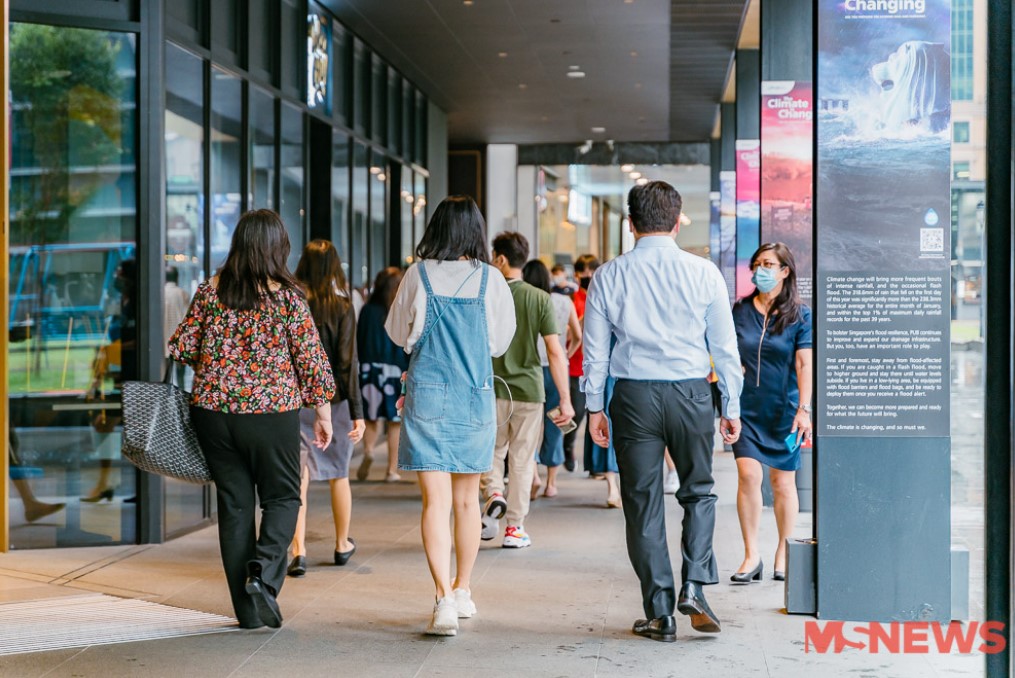
“We’re just one small person in a very large set of other people, in a large body of people.”
Hence, this leads to “insular and defensive” behaviour, which Dr Boag said is a “protective mechanism”.
Speaking to MS News, Associate Professor Dr Tan Ern Ser with the Department of Sociology at the National University of Singapore (NUS) expressed that being rude is not unique to Singaporeans.
“I don’t think rudeness characterises our national character,” noted Dr Tan.
When asked why Singaporeans may be perceived as rude, he said that naturally, any situation that causes tension — such as being unfairly treated or mistreated — could produce a rude response.
However, he said, “the causes of rudeness shouldn’t be taken as justification for rudeness”.
In addition, those on the receiving end of rudeness may feel it more pertinently. They thus may be inclined to generalise the entire population as such, he added.
Some rude people do not represent a whole country
Is it thus enough to label the issue of expecting courtesy from our citizens a lost cause?
Not quite, as it turns out. In 2022, the Singapore Kindness Movement (SKM) surveyed 1,012 respondents and found that “small acts of graciousness” had continued to grow in frequency.
In their definition, this included consideration and appreciation for others, especially towards older generations or vulnerable segments.
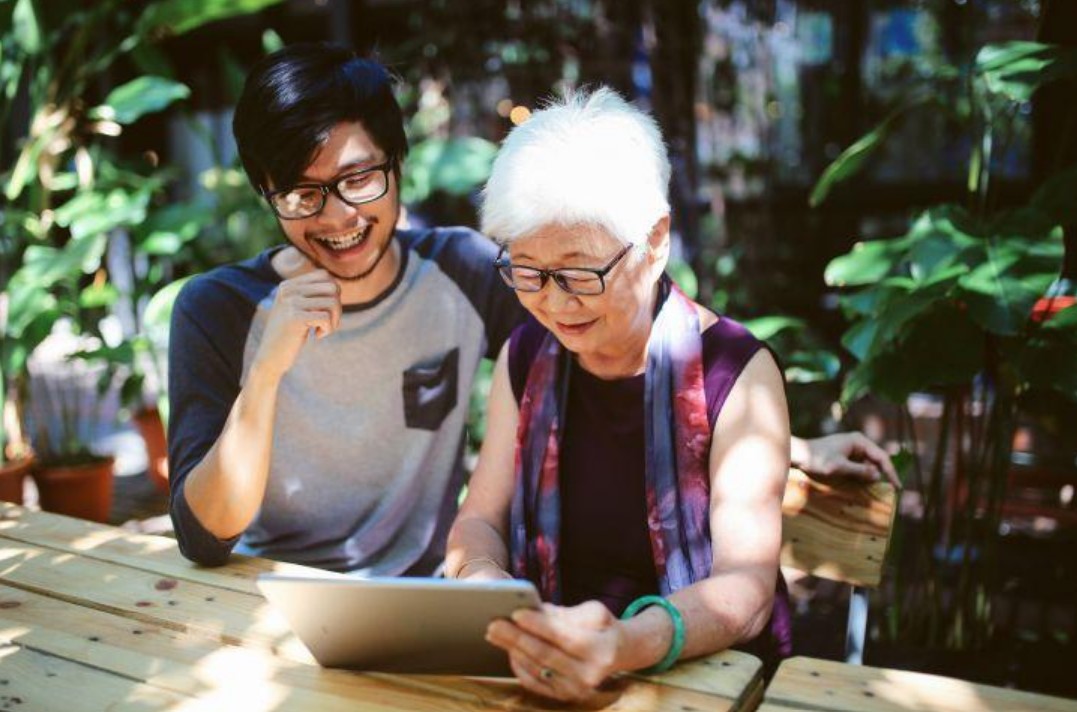
Source: Singapore Management University
Exhibiting courtesy towards others does not have to be some grandiose gesture of kindness, after all.
Simple things, such as telling an elderly hawker during lunch to keep the change, or holding the lift door open for others, count as well.
More outward gestures of kindness also crop up in the news every now and then.
More recently, a Choa Chu Kang resident left out free snacks in the corridor of her HDB residence during the month of Ramadan.
Therefore, evidence to suggest that citizens do still go the extra mile for others certainly exists.
In a society as fast-paced as ours, it may be fleeting. But occasionally, some go above and beyond to make the day a little brighter for those in need.
Keep the habit, practice small acts of kindness
Perhaps the apparent lack of courtesy exhibited among Singaporeans in our city is something that might continue. Especially in a society as fast-paced, harried and overworked as ours.
On the other hand, though, it is conversely possible that acts of kindness are practiced regularly in our community. We just need to look out for them more keenly.
Either way, it might be time to start practicing a little more courtesy towards those around us. Even if it’s just to ease our own conscience.
“Rudeness begets rudeness,” Dr Tan advised, when asked about what could be done to change such a perception of Singaporeans. “Check our own behaviour… we may often use other’s rudeness to justify our own rudeness.”
Indeed, we don’t have to start offering others umbrellas during rainy days, or a drink during the sweltering heat.
Simple acts, such as holding the door open, or wishing local cleaners well in the early hours of the day, might be a good start.
Have news you must share? Get in touch with us via email at news@mustsharenews.com.
Featured image adapted from Keith Yap on Unsplash for illustration purposes only.

Drop us your email so you won't miss the latest news.
